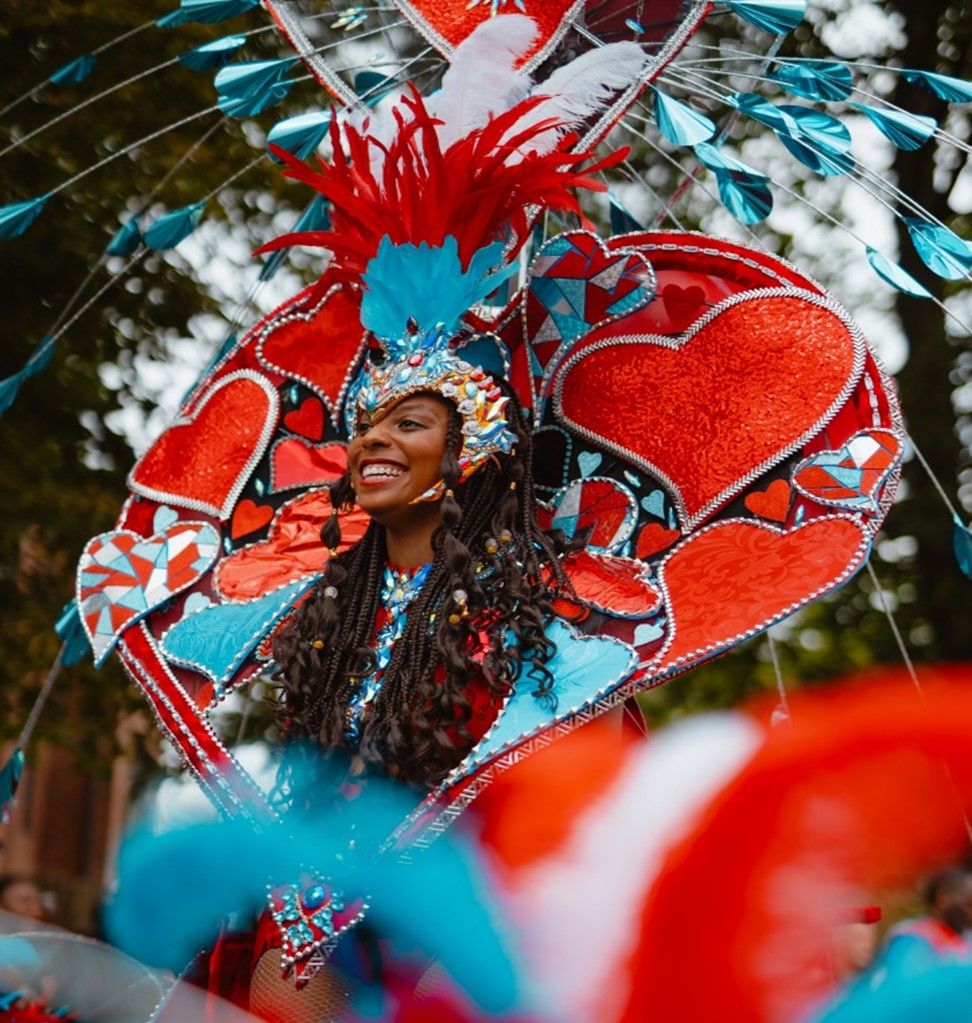The Leeds West Indian Carnival, Europe’s oldest and largest outside of London, showcases the cultural diversity of Leeds, attracting 100,000 visitors yearly. As a celebration of Caribbean culture, the carnival enriches the city’s economy, fosters community unity, and reflects Leeds’ commitment to inclusive festivities.
What is the significance and impact of the Leeds West Indian Carnival?
The Leeds West Indian Carnival, Europe’s oldest and the largest outside of London, is integral to Leeds’ cultural diversity, attracting roughly 100,000 visitors annually. It bolsters the city’s economy, enhances community cohesion, and celebrates Caribbean culture, demonstrating Leeds’ rich, diverse heritage and commitment to inclusive festivities.
A Celebrated History and Cultural Impact
Leeds is once again gearing up to embrace its rich cultural tapestry with the return of the Leeds West Indian Carnival. Known for being a vibrant display of colour and community spirit, the carnival has a storied history, stretching back to 1967. As Europe’s oldest West Indian Carnival, and the largest outside of London, it plays a pivotal role in showcasing the cultural diversity of the city. Each year, approximately 100,000 visitors flock to Leeds, eager to participate in the festivities and soak in the atmosphere that the carnival is famed for.
This August Bank Holiday weekend promises to be a particularly special occasion, as the carnival makes a triumphant return with an updated parade route. The changes aim to minimize disruptions by reducing the number of road closures, thus impacting fewer residents. It’s a thoughtful nod to the local community’s needs while preserving the essence of this jubilant event.
The significance of the Leeds West Indian Carnival extends far beyond a mere annual celebration. It contributes substantially to the city’s economy, enhances community cohesion, and strengthens Leeds’ identity as a culturally diverse metropolis. It’s an event that brings together people from all walks of life, united in their appreciation for Caribbean culture and the arts.
Parade Details and Logistics
This year’s parade, scheduled for Monday, 26 August, will introduce attendees to a fresh route. The new course will traverse through:
- Harehills Avenue
- Spencer Place
- Roundhay Road
- Barrack Road
- Chapeltown Road
These roads will be completely closed to traffic from 6am until 10pm on parade day, ensuring the safety of the revelers and allowing the festivities to unfold seamlessly. Despite these closures, most public transport links will remain operational, and access to essential services, like St James’s Hospital, will be maintained. This careful planning underscores the commitment to both celebration and civic responsibility.
In preparation for the grand event, select road closures will also occur on Sunday, 25 August, on Chapeltown Road and Harehills Avenue. Such preemptive measures are set to facilitate the smooth running of the festivities the following day.
The parade itself is set to commence at 2pm from Potternewton Park on the bank holiday Monday. Participants will revel in two laps of the new route, providing ample opportunity for spectators to immerse themselves in the splendor of the costumes and the rhythm of the music. The first lap serves a dual purpose: it is a chance for judges to assess the stunning displays, while also allowing the audience to experience the cultural showcase. The second lap is dedicated to celebration, as the troupes revel in the festivities before returning to Potternewton Park for their final performances.
Financial Sustainability and Community Support
The longevity of the Leeds West Indian Carnival hinges on sustainable funding. Leeds City Council has long been a proponent and financial backer of the event. However, like many councils across the nation, it faces significant financial pressure. Recognizing the need for a strategic shift in funding, Leeds City Council and community leaders are now exploring alternative models to secure the future of the carnival.
In the lead-up to this year’s carnival, an innovative donation scheme will be unveiled, allowing those who cherish the cultural event to contribute to its continuation. The message from the organisers is clear and resonates with a sense of community spirit: “Help us keep carnival alive”. This call to action is not just about raising funds; it is about galvanizing collective support to preserve a cultural touchstone of the city.
Councillor Mohammed Rafique, Leeds City Council’s executive member for climate, energy, environment and green space, reflected the sentiments of the council when he stated: “We recognize the enormous benefits that this annual event makes to our city’s culture, economy, and communities and we are very proud to host it. It should be a great weekend where everyone can join in.” This endorsement from the council underscores the importance of the carnival to Leeds’ social and cultural fabric.
Meanwhile, Arthur France MBE Hon LLD, a founding member and chairperson of the Leeds West Indian Carnival, expressed the inclusive nature of the event, saying, “We pride ourselves on welcoming EVERYONE to Carnival – ours is an open invitation… we invite you to celebrate.” His words encapsulate the ethos of the carnival, emphasizing that it is an event where diversity is celebrated and everyone is encouraged to participate in the joyous occasion.
Leeds West Indian Carnival not only stands as a beacon of cultural celebration but also as an example of how a city can come together to honor its diverse heritage. With its eye on the future and its heart in the community, the carnival continues to dance forward, vibrant as ever, into a new era of sustainable celebration.
- The Leeds West Indian Carnival is Europe’s oldest and largest outside of London, attracting approximately 100,000 visitors annually.
- The carnival bolsters Leeds’ economy, enhances community unity, and reflects the city’s commitment to inclusive festivities.
- The 2023 carnival will feature a new parade route to minimize disruptions and ensure safety for participants and spectators.
- Sustainable funding is crucial for the longevity of the carnival, with a new donation scheme being introduced to secure its future.
- The Leeds City Council and community leaders are exploring alternative funding models to support the carnival and preserve its cultural significance.
